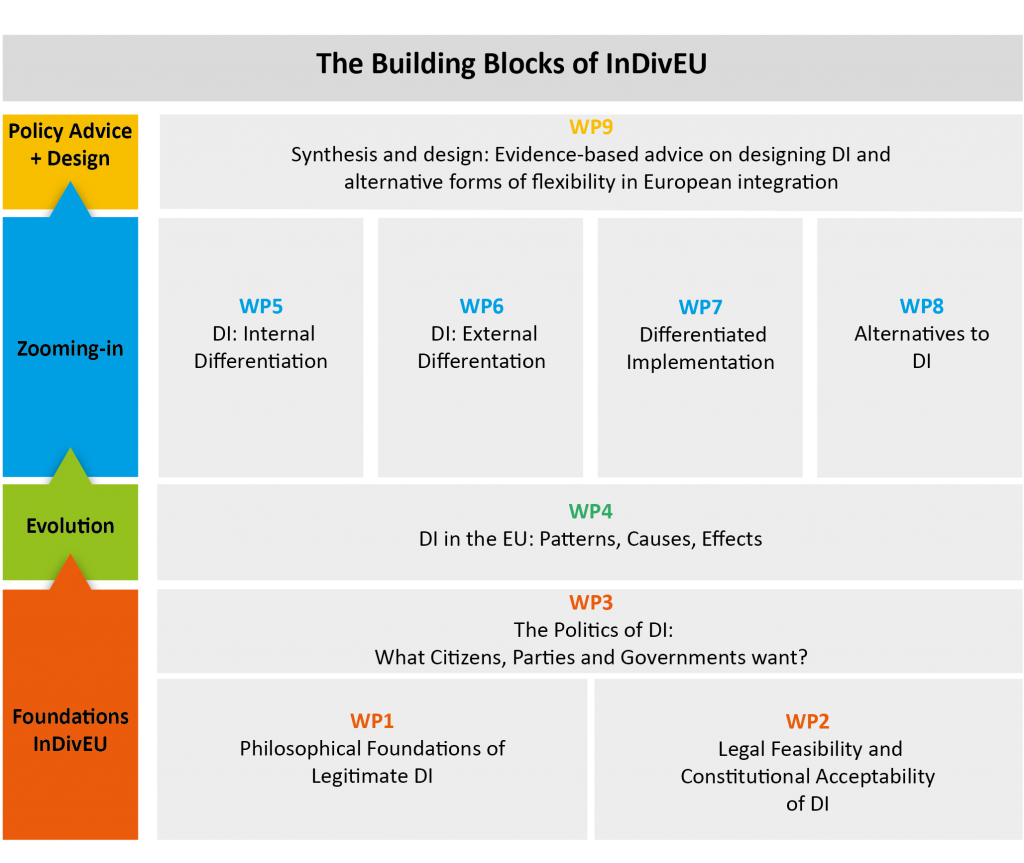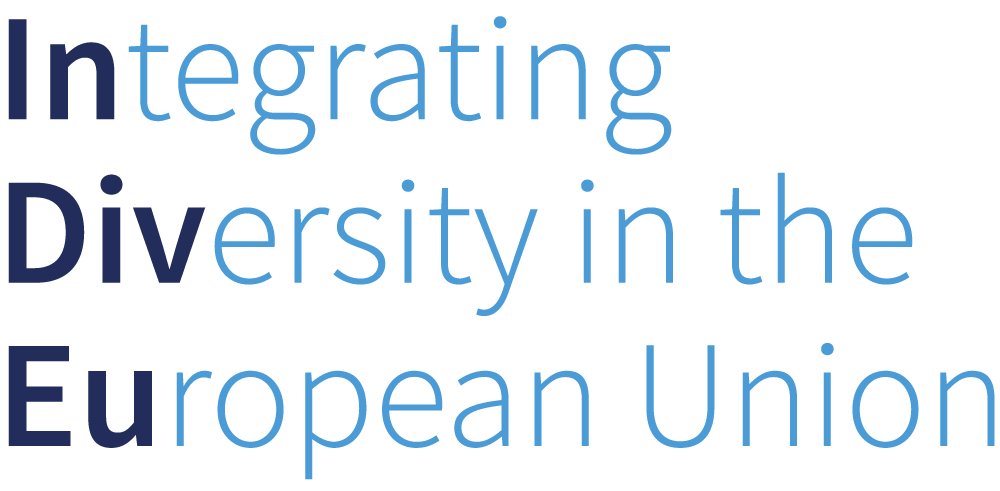Background
In November 1979, Ralf Dahrendorf delivered a speech at the European University Institute, A Third Europe?, emphasising the merits of a Europe ‘a la carte’ as a means of addressing blockages in the integration process. Dahrendorf was promoting what came to be called a form of ‘Differentiated Integration’. Today the challenge has returned to the EU’s political agenda in a compelling manner as it seeks to overcome a decade of crisis and the unfolding of Brexit.
Differentiated Integration is a crucial issue in the discussions around the ‘Future of Europe’. It is prominently flagged by President Macron and features in the Commission’s 2017 White Paper on the Future of Europe (EU Commission 2017).
The Project

InDivEU begins from the assumption that managing heterogeneity and deep diversity is a continuous and growing challenge in the evolution of the EU and the dynamic of European integration. InDivEU aims to maximise our knowledge of Differentiated Integration by systematically pursuing four research objectives: the models and visions, the preferences of citizens, governments and parties, the causes and effects, and other forms of flexibility.
The project will complete two databases on the uses of Differentiated Integration and two data sets on public opinion and flexible implementation. This work will be complemented by focusing on key policy fields as well as on the EU’s relations with its neighbours. Finally, InDivEU will include thorough analysis of the preferences of citizens, parties and governments on Differentiated Integration.
InDivEU will use various methods and data sources to explore Differentiated Integration conceptually and normatively, describe its historical trajectory and patterns, examine its causes and effects, study alternative forms of flexibility, and provide evidence-based policy advice on designing future forms of Differentiated Integration.
It brings to bear the key disciplines of political theory, political science, law and economics that will assure the trans-disciplinary analysis of Differentiated Integration necessary to go beyond the state of the art. Stakeholders are an integral part of the research process and stakeholder knowledge is fully integrated into the project through a series of seven stakeholder forums.
Four critical groups of stakeholders in particular were identified for the purposes of this study: academics, policy makers, civil society organisations and citizens.
Smart dissemination, exploitation and proactive communication plans will leverage the potential of a variety of communication mediums and the multiplier capacity of our combined consortium of research universities, institutes of international relations and think tanks. The aim is to extend the impact of the project to the world of education and training so that its enduring legacy is assured.
InDivEU will combine excellent academic research with the capacity to translate research findings into policy design and advice. The research will be supported by professional expertise and knowledge in project management, exploitation, dissemination and communication.
